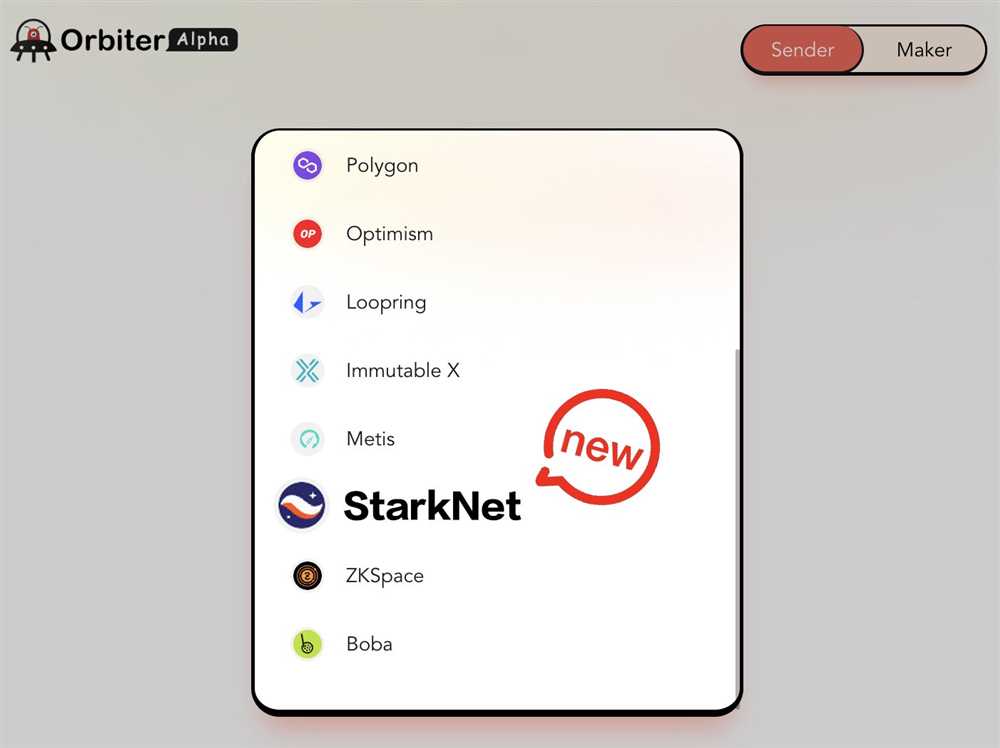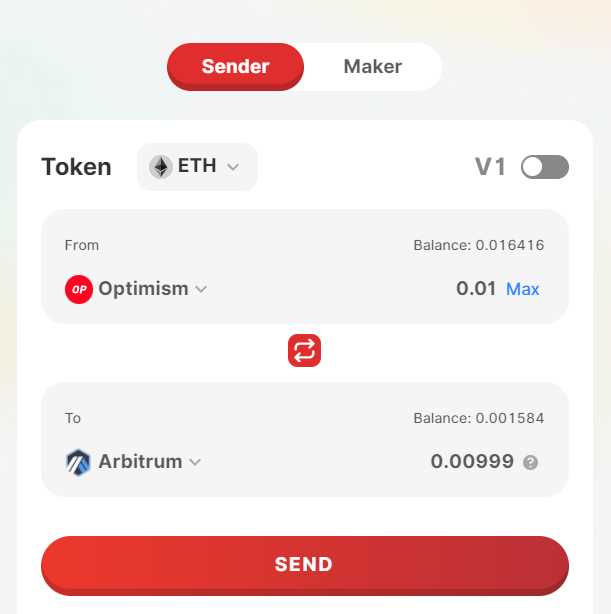
How Margin Serves as Collateral and Guarantees Transfer Completion in Orbiter Finance’s Contract

In the world of finance, collateral plays a crucial role in securing loans and mitigating risk. One such form of collateral is margin, which is often used in derivative contracts. Orbiter Finance’s contract utilizes margin as both collateral and a transfer guarantee, providing a comprehensive approach to risk management.
Margin as collateral serves as a security deposit that borrowers must provide to lenders. It acts as a form of insurance against potential losses. By requiring borrowers to deposit margin, lenders are protected in the event of default or non-payment. This collateral can be in the form of cash, securities, or other eligible assets that have a tangible value.
Orbiter Finance’s contract takes margin collateral to the next level by incorporating it as a transfer guarantee. This means that in addition to serving as security for the lender, margin can also be transferred between parties to facilitate the smooth execution of the contract. By allowing margin to be transferred, Orbiter Finance ensures that both parties have a stake in honoring the terms of the contract.
Moreover, margin as a transfer guarantee enhances liquidity by providing an avenue for investors to meet their funding needs. Instead of relying solely on their own capital, investors can use margin to secure loans or enter into derivative contracts. This flexibility allows for a more efficient allocation of funds and can potentially increase market participation.
In conclusion, Orbiter Finance’s contract utilizes margin as collateral and a transfer guarantee to bolster risk management strategies. By requiring margin as collateral, lenders can mitigate potential losses and ensure borrower accountability. Additionally, the ability to transfer margin between parties enhances liquidity and promotes a more efficient allocation of capital. This comprehensive approach to margin utilization showcases the innovative risk management techniques employed by Orbiter Finance.
What is Margin as Collateral?

In the world of finance and trading, margin refers to the amount of collateral that a trader needs to put up in order to enter into a leveraged position. It is essentially a form of security that protects the lender or platform from potential losses.
When a trader wants to trade with leverage, they need to provide a certain amount of margin as collateral, which is typically a percentage of the total value of the trade. This margin is held by the platform or lender as a guarantee that the trader will be able to repay any losses incurred.
The use of margin as collateral allows traders to benefit from the potential gains of a leveraged position, magnifying their profits. However, it also exposes them to higher risk, as losses will also be magnified. The amount of margin required can vary depending on the platform and the specific trade being executed.
How does margin as collateral work?

When a trader opens a leveraged position, they are essentially borrowing funds from the platform or lender. This borrowed amount is used to increase the size of the trade and the potential profit or loss. The margin acts as a form of collateral to secure the borrowed funds.
If the trade starts to go against the trader and they begin to incur losses, the platform may issue a margin call. This means that the trader needs to either deposit additional margin to cover the losses or close the position to limit further losses.
If the trader fails to meet a margin call, the platform or lender has the right to liquidate the trader’s position and use the margin as collateral to reclaim their funds. This helps protect the lender from potential losses and ensures that the trader fulfills their financial obligations.
It’s important for traders to understand the concept of margin as collateral and the risks involved before engaging in leveraged trading. By having a clear understanding of margin requirements and managing risk effectively, traders can maximize their potential profits while minimizing potential losses.
Collateral Transfer Guarantee Explained

In Orbiter Finance’s contract system, the concept of collateral transfer guarantee plays a critical role in ensuring the security and integrity of asset transfers. This mechanism acts as a safeguard to protect both parties involved in a transaction.
When a user initiates a collateral transfer, they are required to provide certain assets as collateral. These assets serve as a guarantee against any potential default or non-payment by the user. This ensures that the other party involved in the transaction, such as a lender or counterparty, can rely on the collateral in case of any unforeseen circumstances.
In the event of default or non-payment, the collateral can be used to compensate the affected party for their loss. Orbiter Finance’s contract system automatically transfers the collateral to the appropriate party, ensuring the smooth settlement of the transaction.
The collateral transfer guarantee in Orbiter Finance’s contract system is a crucial aspect of risk management. It provides a layer of protection for participants in the ecosystem, reducing the overall risk associated with lending or other financial transactions.
It is important for users to understand the implications of the collateral transfer guarantee when engaging in transactions on Orbiter Finance’s platform. By providing collateral, users can ensure the integrity and security of their transactions, creating a reliable and trustworthy environment for all participants.
The Importance of Margin in Orbiter Finance’s Contract

Margin plays a crucial role in Orbiter Finance’s contract by ensuring the ability to cover potential losses and guaranteeing the transfer of assets.
Orbiter Finance recognizes that market volatility and unforeseen circumstances can impact the value of collateralized assets. Therefore, the concept of margin is introduced as an extra layer of security to safeguard against potential risks.
Collateral Coverage

Margin acts as collateral for the contract, providing a buffer for potential losses. By requiring a certain percentage of the contract’s value to be secured as margin, Orbiter Finance ensures that there is enough collateral to cover any potential shortfall.
This collateral coverage helps protect both the lender and the borrower. For the lender, it minimizes the risk of financial loss in case the borrower defaults on the contract. For the borrower, it guarantees the ability to participate in the contract while limiting the risk of liquidation and loss of their assets.
Transfer Guarantee

In addition to collateral coverage, margin also serves as a transfer guarantee. If the borrower intends to transfer their assets during the contract term, the margin ensures a smooth and secure transfer process.
By using margin as a transfer guarantee, Orbiter Finance establishes a precedent for seamless asset transfers. This strengthens the overall integrity and reliability of the contract, creating a more secure environment for all parties involved.
| Benefits of Margin in Orbiter Finance’s Contract |
|---|
| 1. Enhanced risk management |
| 2. Increased security for lenders and borrowers |
| 3. Smooth and secure asset transfers |
In conclusion, margin serves as a critical component of Orbiter Finance’s contract. It ensures collateral coverage and acts as a transfer guarantee, enhancing risk management, providing increased security, and enabling smooth and secure asset transfers.
Q&A:
What is margin in Orbiter Finance’s contract?
In Orbiter Finance’s contract, margin refers to the collateral that a user must deposit in order to open a position.
How does margin work in Orbiter Finance’s contract?
When you open a position in Orbiter Finance’s contract, you are required to deposit a certain amount of collateral as margin. This collateral acts as a guarantee or insurance for the contract.
Why is margin important in Orbiter Finance’s contract?
Margin is important in Orbiter Finance’s contract because it helps to ensure that the user has enough funds to cover potential losses from their position. It acts as a safety net and protects both the user and the platform.


